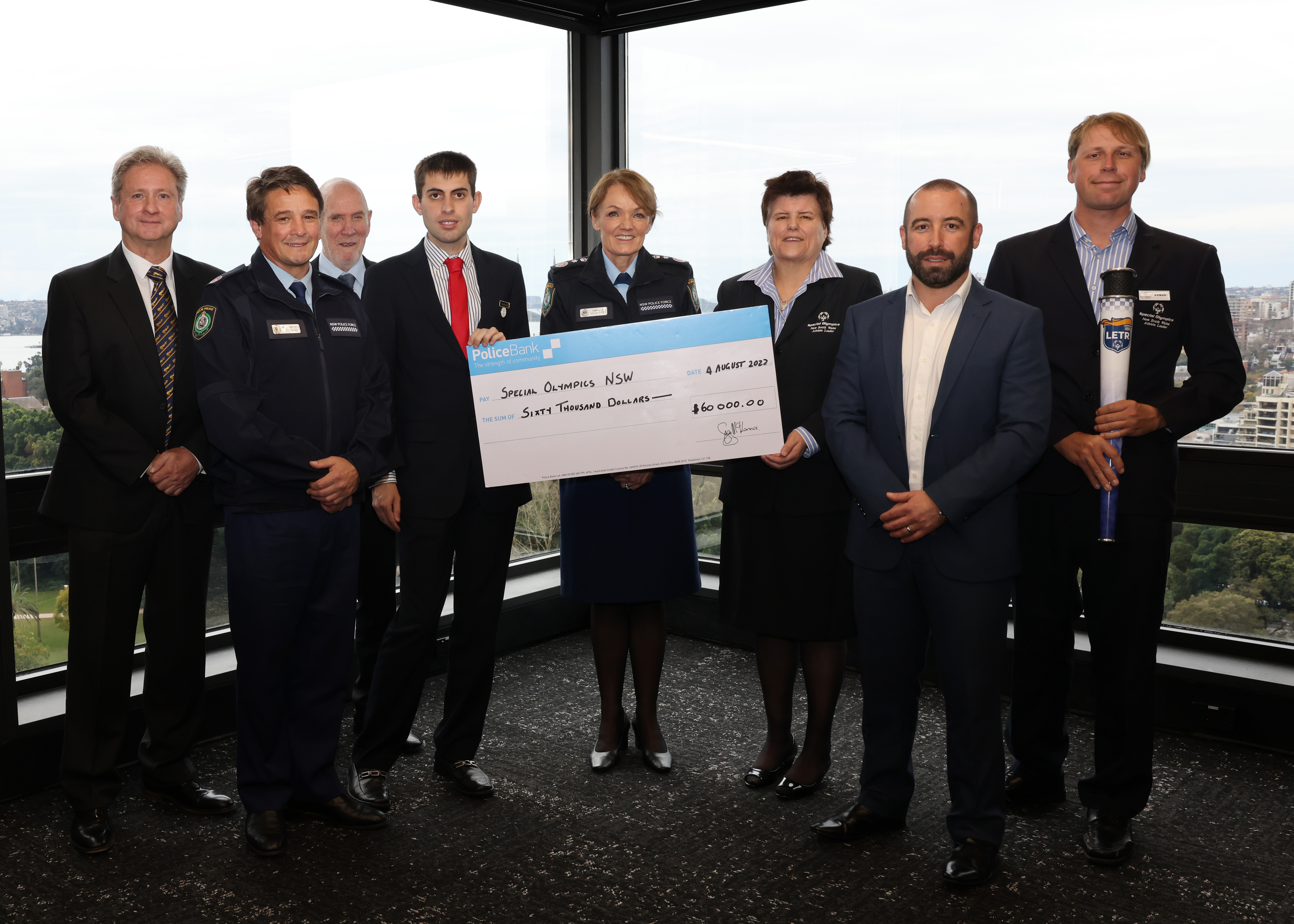
NSWPF CoP Karen Webb presented a $60,000 cheque to Tony Moore, Chairman of the Special Olympics NSW. In two years, officers from across the state, including recruits at the NSWPF Academy in Goulburn, have donated almost $200,000 to support this initiative. The funds raised will help send a team of athletes to the National Games in Launceston in October. Photo credit: NSWPF.
By Sonia Roberts
PANSW Police News Contributor
A request to “take a look at a file” was the starting point for a group of now-retired police officers to begin one of the NSWPF’s largest community engagement initiatives.
Among the group is former Detective Inspector Alan Keane, who retired from NSW Police in 2005 after 25 years of service. He is currently the President of the Law Enforcement Torch Run NSW - one of many officers who continue to be a part of LETR after they hung up the badge.
LETR is a worldwide police charity that operates the largest and most active community engagement initiative in global policing today. In Australia, the program funds much of the week-to-week activities of the local Special Olympics clubs in the community – allowing people living with an intellectual disability to get involved in sports and organised competition. This year is the 20th anniversary of the LETR in NSW.
Alan first became involved in LETR in 2002 when then Assistant Commissioner Chris Evans placed a file on his desk and asked him to “have a look at it”.
“It was a request from Special Olympics Australia for police to conduct a Torch Run in support of their National Games being held in Sydney. Plans were made for Torch Runs from Wagga to Sydney, including taking the Torch into the Opening Ceremony at the old Entertainment Centre near Chinatown.”
It was a week like no other. The on-road team for the first LETR encountered many challenges, with then Inspector Keane having to arrest a man for Offensive Behaviour as the LETR passed through Bateman’s Bay. Then Commissioner Ken Moroney received the Torch (a symbol of the support law enforcement has for the Special Olympics and its athletes) from the then Water Police at Darling Harbour on the evening of the Opening Ceremony of the 2002 National Games and walked in with athletes to light the cauldron.
After the event, work began on formalising NSW Police support for Special Olympics and LETR. Alan enlisted help from former Detective Inspector Steve O’Grady and then Senior Constable (now Inspector) Ben Macfarlane. Along with Detective Superintendent Scott Whyte (formerly of Counter Terrorism & Special Tactics Command) and Sergeant Don Stuart (both retired), all remain involved with LETR.
Alan continued his work with LETR as the organisation’s most successful business model involved a mix of serving and former officers. In time, he took on more administrative duties within LETR NSW while former Detective Superintendent Scott Whyte worked within NSW Police to ensure continued support.
“Don Stuart and I took over the fundraising strategies and we began introducing the new recruits at Goulburn to the LETR concept and the benefits of Special Olympics.
“We began a formal ‘workplace giving’ system within NSWPF that enabled funding to continue so that it could be directed to various Special Olympics projects around NSW.”
Scott has gone on to be the current Chair of LETR International. He occupies that position as a result of his experiences with LETR in NSW and Australia and his ability to think and act strategically.
Through direct fundraising and value in kind from NSW Police, Alan estimated that LETR in NSW is responsible for more than $2 million in funding. The value in kind support included support from specialist units, police attendance and resource allocation.
To get involved with LETR in NSW, leave a message through the group’s Facebook page (search for @letrnsw) or contact Torch Run Co-ordinator Inspector Tina Davies via email




